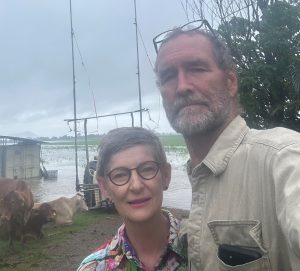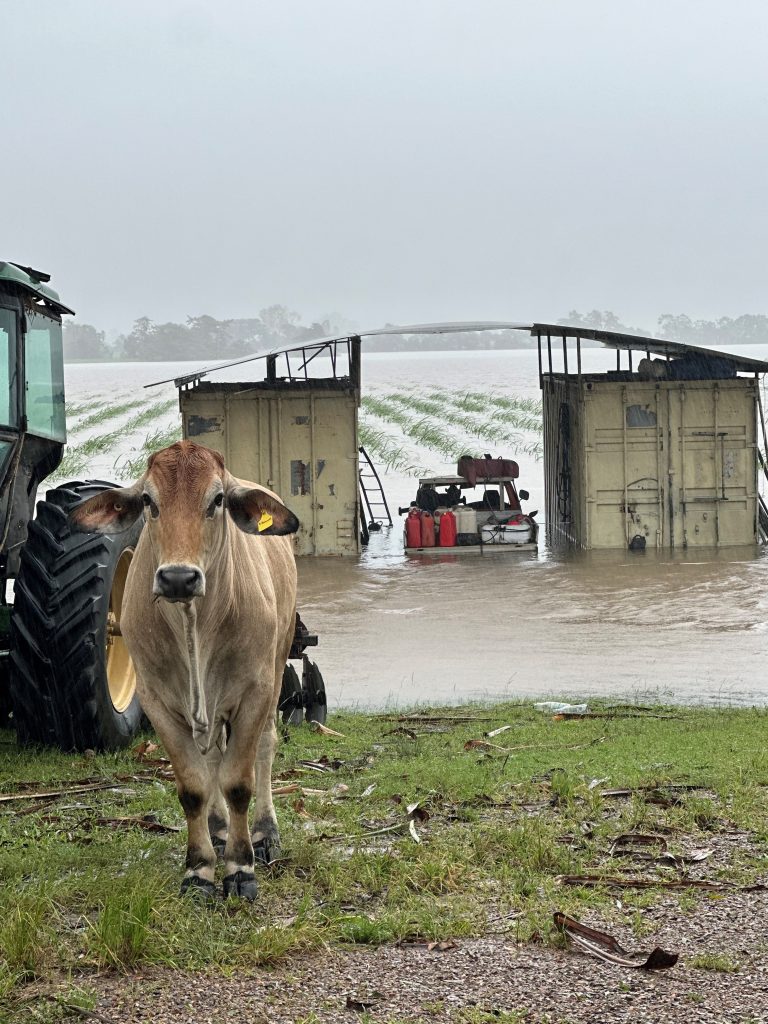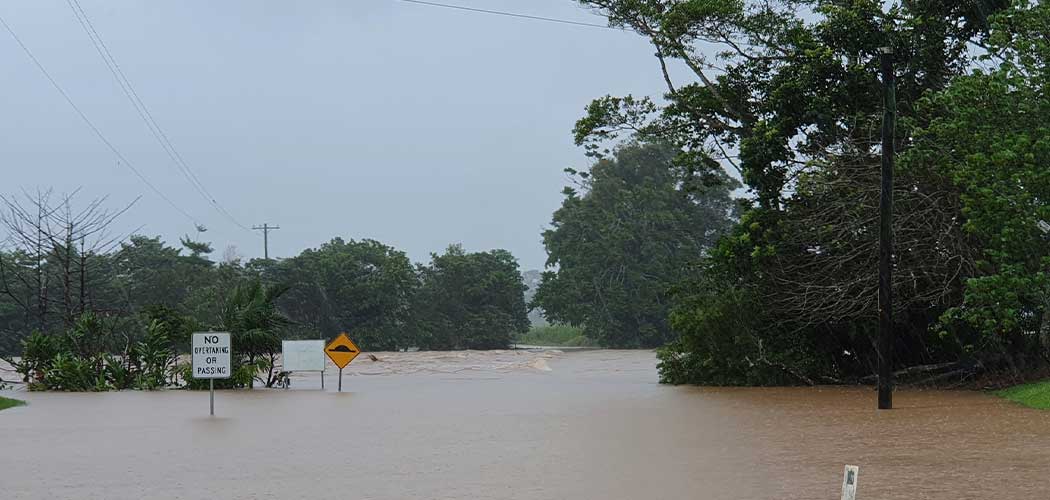This year’s theme for International Day of the Midwife on 5 May is Midwives: Critical in Every Crisis.
Midwives are trusted first responders within their communities who can prepare health systems for any crisis.
For midwives to adequately respond, they must also ensure they are safe and are equipped with the training, tools, and resources they need to save lives and protect rights in the most challenging settings.
Georgina Bosworth, a private practice midwife in Ingham, North Queensland, was impacted by the devastating floods in February, as she had four women due to homebirth that month.

“I think if you asked anyone in Ingham how they are, they’d say ‘I’m not sure.’ It’s like the entire town has its household contents emptied onto the footpath in a big soggy pile ready for the dump.”
Georgina and her husband Donal live on a cane farm 6km south of Ingham. The entire farm was under water. They lost power for eight days.
“We are well prepared for these events. We have solar panels and battery that kept food in fridges and freezers from spoiling. We filled the bathtub and other containers with water. The vehicles were fuelled and on high ground, we had plenty of gas for cooking and cash for when EFTPOS and ATMs failed. These were lessons learned from previous floods and Cyclone Yasi when we had no safe water for four days and no power for 11 days.”
Georgina moved to north Queensland in 1987 and has had a midwifery private practice for five years.

While flood waters and a damaged bridge physically separated Georgina from pregnant women in her care there was always a plan for care. Miraculously all the babies waited to be born once the flood threat passed and the bridge on the Bruce Highway repaired. If you live in north Queensland, you have to be prepared for floods and cyclones, said Georgina.
“You have to work out the logistics in natural disasters from one hour to the next. Every woman and family in my care understands and is prepared for a natural disaster and imminent and unassisted birth should that happen.”
Part of the Nursing and Midwifery Board of Australia (NMBA) regulatory requirements for privately practising midwives includes a process for identifying and managing environmental risks.
“Midwives are very adaptive and pivot when there are obstacles, and they connect with their peers. Even now, I’m collaborating with colleagues from Tasmania to Darwin. They’re very supportive.”








